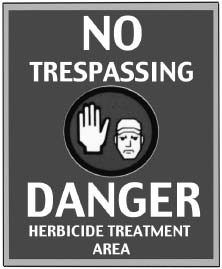 |
|
 |
 |
|
 |
There are three important points to remember about pesticides.
Maine's paper corporations currently spray approximately 35,000-60,000 acres of forest each year with dangerous herbicides to eliminate the hardwoods and shrubs that compete with spruce and fir. Study after study shows that these chemicals have serious negative consequences for the health of the ecosystem and the health of humans. In addition to killing the hardwoods and shrubs that are an integral part of the Maine woods, these chemicals have a serious negative impact on essential soil bacteria and fungi, reducing soil productivity and increasing nutrient loss and erosion. Rare and endangered native plants are put at risk. The reduction of plant diversity limits the availability of preferred foods, shelter and breeding areas for mammals and birds. When the chemicals wash off into streams, ponds and lakes they can have a serious negative impact on fish and other aquatic organisms. The herbicides used in forestry also have serious negative health consequences for humans. The active ingredients in several of the most commonly used herbicides have been linked to a disruption of the endocrine system in mammals, leading to reproductive problems such as a decrease in sperm count. Exposure to these chemicals has also been linked to immune system dysfunction. And in a 1999 study a clear link was found between glyphosate, the active ingredient in the most commonly used herbicides, and non-Hodgkins lymphoma, a cancer of the lymphatic system which has increased worldwide at an alarming rate in recent years. Some of these pesticides require a petroleum-based carrier, usually diesel fuel or kerosene which contaminate the groundwater and come with their own set of health and environmental problems. All of the pesticides in current use have been inadequately tested to determine their full effects on the ecosystem and on human health. Allowing their continued use in the forest is to permit the continuation of a giant environmental experiment. Since first established, the seven member, governor-appointed Board of Pesticides Control has been dominated by industry. In fact, industry dominance of the board is written into the legislation that established the board. Of the seven members, "the board must consist of the following members: one person with practical experience and knowledge regarding the agricultural use of chemicals; one person who has practical experience and knowledge regarding the use of chemicals in forest management; .....a scientist from the University of Maine System specializing in agronomy or entomology having practical experience and knowledge of integrated pest management (all industry funded); one commercial applicator;..." Despite the dangers to our health that these chemicals pose, only one of the seven members is currently required to come from the medical community, while four of the members represent the needs of industry. So, understandably, the board has been extremely ineffective at protecting the public and the environment from dangerous pesticides. However, for a government agency such as the Board of Pesrticides Control to sanction the use of synthetuc chemical pesticides is the same as them sanctioning the slow poisoning of the human species and the environment in general. In our view, the board should be increased from 7 to 16 members. There should be one representative from each of Maine's 16 counties, elected by the voters of that county. This would inject a large dose of democracy into the process, and hopefully wrest control of the board, and our continued good health, away from industry. |
283 Water Street, 3rd floor, P.O. Box 2118, Augusta, Maine 04338 phone: 207-628-6404 fax - 207-628-5741 email: fen@powerlink.net